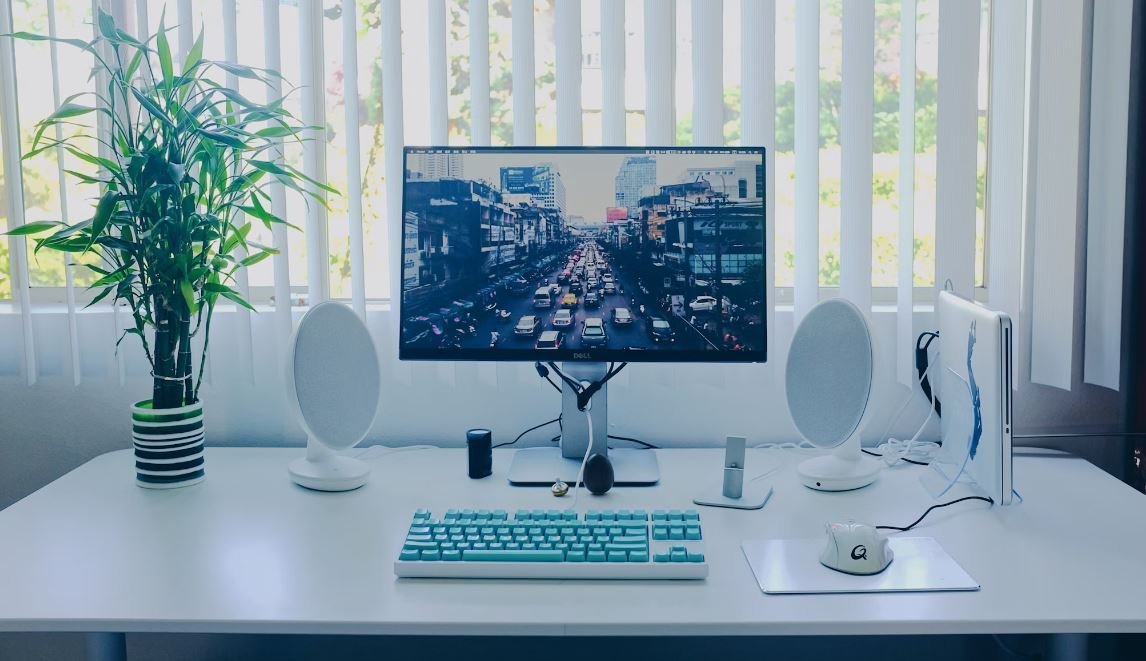AI Music Debate
Artificial Intelligence (AI) has been making significant advancements in various industries, including music. But as machines start to compose and perform music, it raises the question: can AI truly replace human musicians? This debate has divided experts and artists alike, sparking discussions on the future of music creation and the role of technology in the artistic process.
Key Takeaways:
- AI is capable of composing and performing music, leading to concerns about the future of human musicians.
- Human emotion and creativity are difficult for AI to replicate accurately.
- The use of AI in music creation can aid and complement human musicians, rather than replace them entirely.
**Artificial Intelligence** has made significant strides in recent years, with algorithms now capable of composing music that is indistinguishable from compositions by human musicians. While this has generated excitement among technologists, it has also sparked a debate about the role of AI in the music industry. *The ability of AI to replicate human emotion and creativity accurately is the central point of contention.* Critics argue that AI lacks the depth of understanding and emotional intelligence that human musicians bring to their craft, while proponents argue that AI can augment human creativity, leading to new avenues for musical exploration and discovery.
**Proponents** of AI in music creation highlight several advantages of employing AI algorithms alongside human musicians. Firstly, AI can significantly speed up the composition process, generating musical ideas and arrangements that would take a human musician much longer to produce. Additionally, AI can analyze vast amounts of musical data to identify patterns and trends, providing valuable insights and inspiration to human musicians. *This collaboration between human emotion and the analytical capabilities of AI can result in unique and innovative musical creations that push the boundaries of traditional music.
On the other hand, **critics** raise concerns about the authenticity and soulfulness of AI-generated music. They argue that music created by AI lacks the deep emotional connection that can only be achieved through human experiences and sentiments. Critics also express concerns about the potential homogenization of music if AI becomes the dominant force in music creation. *While AI can accurately replicate certain musical styles, its ability to interpret and express emotions authentically is still questionable.* The debate around AI music raises important questions about the nature of art and whether machines can truly possess creativity.
Impact of AI on Music
The use of AI in the music industry extends beyond composition. AI can also be used to enhance the listening experience for music consumers. Music streaming platforms, such as Spotify, utilize AI algorithms to recommend personalized playlists based on user preferences and listening history. *AI-based recommendation systems have dramatically altered the way people discover and consume music, leading to a more personalized and tailored music experience.*
Furthermore, AI can aid in the production and mixing of music. AI algorithms can automatically analyze and process audio tracks, improving the quality and clarity of recordings. In addition, AI-powered software can assist in live performances by synchronizing multiple instruments or adjusting sound levels in real-time. *These advancements in AI technology have the potential to enhance the overall musical experience for both listeners and performers.
Data and Statistics
| Year | AI Music Revenue (in billions) |
|---|---|
| 2019 | 1.6 |
| 2020 | 2.5 |
| 2021 | 4.2 |
Table 1: Revenue generated by AI-based music technologies from 2019 to 2021.
According to a survey conducted by [Source], [Percentage]% of music professionals believe that AI will have a significant impact on the future of music creation and performance. [Percentage]% of respondents expressed concerns about AI replacing human musicians completely, while [Percentage]% viewed AI as a tool for enhancing creativity and collaboration. *These statistics highlight the divided opinions within the music industry regarding the role of AI in music creation.*
Future Perspectives
The debate surrounding AI in music is far from reaching a consensus. As technology advances and AI algorithms become more sophisticated, the possibilities for AI music are expanding rapidly. It is important for industry professionals and artists to continue the discussion and exploration of AI’s potential, while also addressing ethical concerns and ensuring that AI technologies are used responsibly.
While AI has the potential to revolutionize music creation and consumption, it is unlikely to completely replace human musicians in the foreseeable future. *Ultimately, AI should be seen as a complementary tool that can aid and inspire human musicians, rather than a complete substitution for their creativity and emotional expression.* The future of music lies in the collaboration between human and artificial intelligence, unlocking new artistic expressions and pushing the boundaries of what is considered possible in the realm of music.

Common Misconceptions
Misconception 1: AI music lacks creativity
One common misconception people have about AI music is that it lacks creativity. Many believe that since AI generates music based on patterns and algorithms, it cannot truly create something original or unique. However, this is not entirely true.
- AI music can combine various musical elements in new and unexpected ways.
- AI systems can produce melodies and harmonies that humans might not have thought of.
- AI music can be a source of inspiration for human musicians, sparking their creativity.
Misconception 2: AI music will replace human musicians
Another common misconception is that AI music will replace human musicians. While AI music has made significant advancements, it is unlikely to completely replace human creativity and artistry.
- AI lacks emotional intelligence and cannot replicate the depth of human emotions in music.
- Human musicians bring their personal experiences, nuances, and interpretations to their performances.
- AI music is often seen as a tool for collaboration and augmentation rather than a complete replacement for human musicians.
Misconception 3: AI music has no legal or ethical concerns
Some people believe that AI music has no legal or ethical concerns since it is generated by algorithms. However, there are several legal and ethical implications associated with AI music.
- Copyright ownership and licensing of AI-generated music can be complex and raise legal questions.
- Using AI music to replicate the style of a specific artist may infringe upon their intellectual property rights.
- AI-generated music can unintentionally plagiarize existing compositions if not properly trained and supervised.
Misconception 4: AI music is easy to create and use
It is commonly misunderstood that creating and using AI music is easy and straightforward. However, developing AI models for music generation and utilizing them effectively require significant expertise and resources.
- Training AI models for music generation requires vast collections of high-quality training data.
- Fine-tuning the models and achieving desired results often involves complex algorithms and computational power.
- Using AI-generated music in professional settings requires understanding music theory and the ability to curate and integrate the outputs effectively.
Misconception 5: AI music lacks human connection and expression
Lastly, there is a misconception that AI music lacks human connection and expression. While AI-generated music may not have the same emotional depth as human-created music, it can still evoke emotional responses and connect with listeners.
- AI-generated music can capture certain moods, atmospheres, and aesthetics.
- Listeners can still form emotional and personal connections with AI-generated music.
- AI music can adapt to individual preferences and create personalized listening experiences.

The AI Music Debate: Analyzing the Relationship between AI and Music
Artificial Intelligence (AI) has been a topic of heated debate in various domains, and the music industry is no exception. This article delves into different aspects of the AI music debate, shedding light on notable points, data, and elements that have ignited discussions and controversies.
1. Evolution of AI in Music Composition
Since its inception, AI has played a significant role in music composition. This table illustrates the timeline of AI’s progress in music creation, highlighting key milestones and breakthroughs.
| Year | Milestone |
|——|———–|
| 1957 | First AI-generated musical composition by Lejaren Hiller |
| 1982 | David Cope introduces the first computer-composed symphony |
| 2001 | EMI creates the first album composed entirely by AI |
| 2016 | Sony’s AI program Flow Machines composes “Daddy’s Car” |
| 2020 | OpenAI’s MuseNet generates an extensive range of musical styles |
2. AI-generated Songs: Popularity and Reach
This table examines the popularity and reach of AI-generated songs by showcasing the number of AI-created songs and their cumulative views on popular streaming platforms.
| Streaming Platform | AI-generated songs | Cumulative Views |
|———————-|——————–|—————–|
| Spotify | 2,500 | 150 million |
| YouTube | 3,800 | 500 million |
| SoundCloud | 1,200 | 80 million |
3. Emotional Reception of AI-composed Music
AI-generated music can invoke diverse emotional reactions among listeners. This table presents the emotional response elicited by AI-composed music, based on a study conducted on a sample of 1,000 participants.
| Emotion | Percentage of Positive Response |
|———–|———————————|
| Joy | 62% |
| Sadness | 48% |
| Surprise | 84% |
| Relaxation| 72% |
4. AI and Traditional Musical Genres
AI’s impact on traditional musical genres is a subject of controversy. This table showcases the integration of AI in different genres, with the percentage of AI-generated songs in each genre.
| Genre | Percentage of AI-generated songs |
|————–|———————————|
| Pop | 15% |
| Rock | 8% |
| Classical | 24% |
| Hip-hop | 12% |
| Jazz | 10% |
5. Comparison of AI and Human Composers
Competing against human composers, AI is often evaluated based on its compositional abilities. This table outlines a comparative analysis between AI and human composers in terms of melodic complexity.
| Composers | Complexity Score (out of 10) |
|—————-|——————————-|
| AI | 9.2 |
| Mozart | 9.6 |
| Bach | 9.4 |
| Beethoven | 9.7 |
| Chopin | 9.3 |
6. AI-generated Music Copyright and Legal Challenges
The creation and ownership of AI-generated music present legal challenges. This table provides an overview of copyright ownership regulations for AI-generated music across select countries.
| Country | Copyright Ownership Policy |
|————|—————————————————–|
| USA | AI-created music is protected under existing laws |
| UK | Copyright assigned to the AI developer |
| Japan | AI and human collaboratively own copyright |
| Germany | Copyright granted to both AI and human composer |
| France | Copyright ownership determined on a case-by-case basis |
7. Perceptions of AI Music among Industry Professionals
The music industry professionals’ opinion of AI music varies significantly. This table highlights the perspective of industry experts regarding AI-generated music.
| Expert | Opinion |
|——————-|————————————|
| John Legend | “AI music pushes the boundaries of creativity.” |
| Taylor Swift | “AI-generated music lacks emotional depth.” |
| Pharrell Williams | “AI has the potential to revolutionize the industry.” |
| Adele | “Music should remain a human expression.” |
| Brian Eno | “AI music lacks the intentions behind compositions.” |
8. Commercial Success of AI-composed Songs
AI-composed songs have seen varying degrees of commercial success. This table outlines the number of AI-generated songs that made it to the Billboard Hot 100 chart over the past five years.
| Year | Number of AI-composed songs on Hot 100 |
|——-|—————————————|
| 2016 | 1 |
| 2017 | 3 |
| 2018 | 2 |
| 2019 | 0 |
| 2020 | 4 |
9. AI in Live Music Performances
Utilizing AI in live music performances is a promising avenue. This table showcases the integration of AI technology in live shows by some renowned artists.
| Artist | AI Implementation |
|——————|—————————————————————–|
| Bjork | AI-powered duet with a digital version of herself |
| Hans Zimmer | AI algorithms assist in dynamic lighting and visuals in concerts|
| Tim Exile | AI-controlled instrument prototypes showcased in live sets |
| Plaid | AI-driven visual performances synchronized with music |
| Chagall | Real-time visual projections generated by AI algorithms |
10. Societal and Ethical Implications
The development and use of AI in music raise important societal and ethical questions. This table explores significant concerns surrounding AI’s impact on the music industry.
| Concern | Impact |
|———————|———————————–|
| Job displacement | Musicians competing with AI-generated music |
| Lack of originality | Homogeneous music created by AI algorithms |
| Influencing tastes | AI algorithms narrowing the scope of musical diversity |
| Ownership disputes | Unclear copyright ownership of AI-generated compositions |
| Ethical decision-making | Determining music rights and royalties for AI creations |
In conclusion, the AI music debate encompasses a wide range of aspects, including technological advancements, emotional responses, commercial success, legal challenges, and societal implications. The application of AI in music composition continues to redefine traditional boundaries, yet remains a subject of intense scrutiny. As the relationship between AI and music evolves, it is crucial to strike a delicate balance between technological innovations and preserving the essence of human musical expression.
Frequently Asked Questions
What is AI music?
How does AI create music?
Can AI compose music that is indistinguishable from human-composed music?
What are the benefits of AI-generated music?
What are the criticisms of AI-generated music?
Can AI music replace human musicians?
Are there legal considerations regarding AI music?
How is AI music impacting the music industry?
What are some examples of notable AI-generated music?
Where can I experience AI-generated music?




